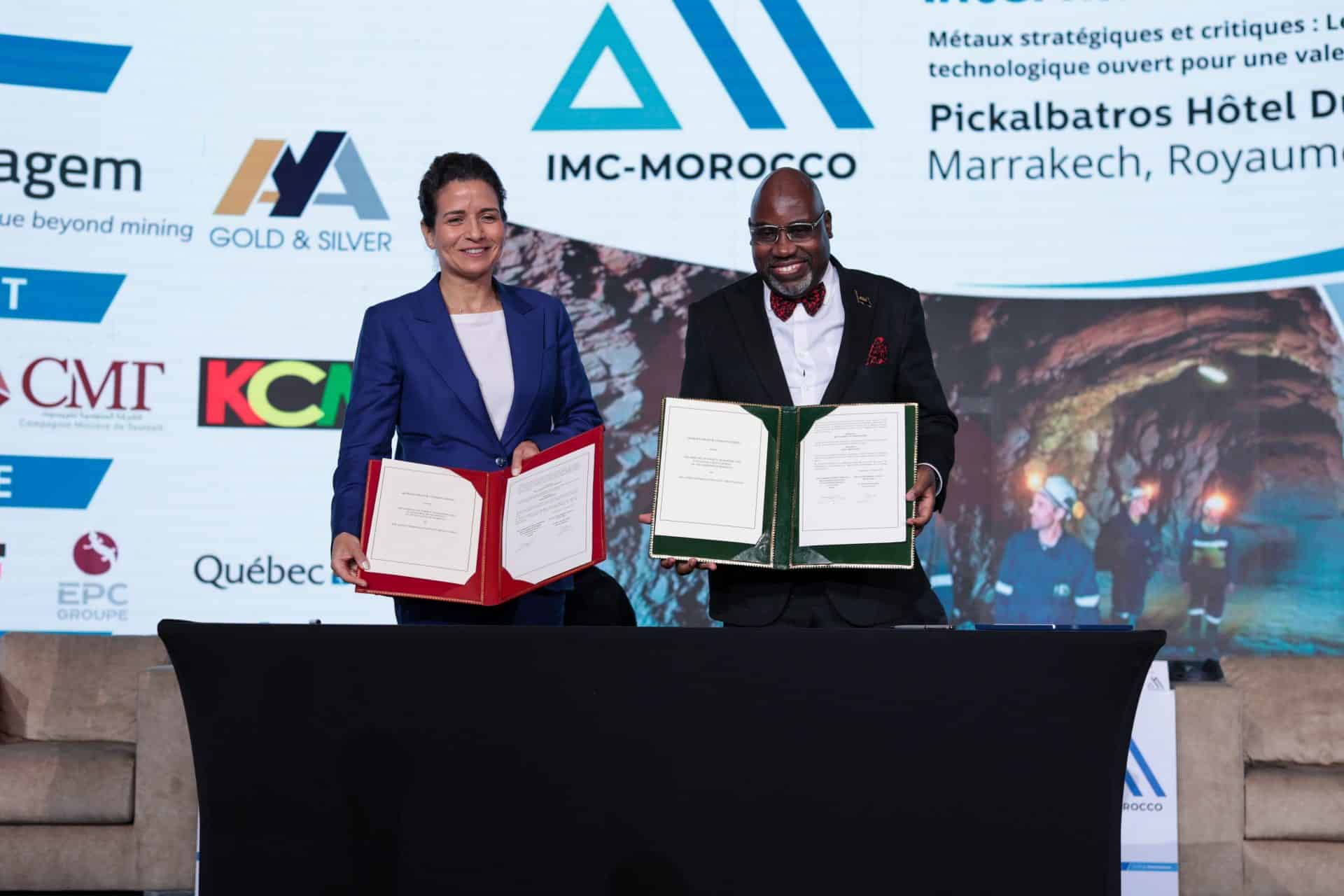Mining Other

Africa adopts continental ESG framework for minerals

Securing reliable supplies of critical minerals is now central to Africa’s plans to strengthen electricity systems, scale battery storage and support hydrogen and renewables — a reality underscored as ministers formally adopted the African ESG Framework and the OC Corridor in Marrakech.
The declaration, read and signed at the International Mining Congress of Morocco on 24 November 2025, is the product of a year of coordinated work across African capitals. It establishes a continental reference for environmental, social and governance standards tailored to African realities, alongside a digital certification and traceability architecture intended to keep mineral value on the continent.
Morocco’s Minister of Energy Transition and Sustainable Development, H.E. Leila Benali, opened the congress by framing the issue in stark utilities terms: modern power systems, from grid stabilisation to electric-vehicle fleets and large-scale storage, cannot be built without secure access to cobalt, lithium, manganese, rare earths and other critical metals. “Without these minerals, there are no batteries, no hydrogen solutions, no electricity systems,” she told delegates.
Benali stressed the mismatch between geological time and industrial time — minerals form over millions of years, but global demand can double almost overnight — and argued that Africa must convert geological centrality into industrial and energy resilience. That conversion, she said, requires coherent standards, digital platforms and coordinated governance so that extraction, processing and certification translate into local jobs, reliable electricity and sovereign industrial capacity.
The OC Corridor (Origin, Transit, Certification) will provide a practical mechanism for traceability and certification across borders, while Morocco will host the digital platform that underpins registration, traceability and certification services. The Marrakech Declaration formalises governance arrangements, sets principles for accountability, fairness and inclusiveness, and invites all African countries to join voluntarily.
Ministers from a wide spread of countries emphasised the utilities and industrial benefits. Saudi Arabia’s vice-minister highlighted technology transfer and talent development as crucial to helping African countries build integrated supply chains. Mauritania and Liberia stressed the need to stop exporting raw materials and instead develop domestic processing and industrial clusters — measures that will underpin more resilient energy systems and reduce exposure to volatile global markets.
For electricity utilities, the implications are immediate. Ensuring domestic or regional processing of battery metals, for example, reduces supply-chain fragility for grid-scale storage projects and local EV roll-outs. Certified, traceable mineral supplies also make it easier for utilities and governments to attract long-term financing for large infrastructure projects, from transmission lines to hydrogen electrolysers, by reducing perceived risk.
A concrete scenario outlined by Minister Benali illustrates the potential: iron ore mined in Gabon could be processed in neighbouring states and transformed into green steel in Morocco using solar, wind and hydrogen. Certified under the African ESG Framework, that steel could be sold at full value internationally — reversing decades of value leakage and creating the inputs necessary for regional industrial and utilities expansion.
The declaration also recognises the importance of formalising artisanal and small-scale miners and integrating them into certified value chains. Breakout sessions at the congress highlighted the role of a digital mining cadastre and one-stop-shop systems that provide transparency on titles, environmental restrictions and available zones. Digitisation aims to reduce delays, bring small operators into the formal economy and channel value into local communities — removing a key barrier to financing and infrastructure roll-out for energy projects.
Panels focused on gender and community development emphasised that successful utilities expansion depends on inclusive approaches. Women’s leadership, training programmes and local content were repeatedly cited as critical to ensuring mining-led industrialisation benefits communities and supports social resilience around major power and industrial projects.
The Moroccan digital cadastre was presented as a model: integrated GIS layers, automated workflows, secure archives and electronic signatures that enable fast, transparent permitting and better infrastructure planning. For developers and utilities planners, such tools can shorten lead times for connecting new renewables and storage assets to grids by clarifying land use, environmental constraints and grid access in advance.
The Marrakech Declaration sets up a governance committee to guide implementation and meet twice yearly. It names Morocco as host of the digital platform and calls for voluntary accession by African states. If widely adopted, the framework could transform how utilities plan and procure critical metals, making long-term procurement more secure and financing for grid and storage expansion more accessible.
Ministers acknowledged the scale of the task ahead: harmonising laws, building infrastructure, and mobilising investment will take time. Yet the political unity demonstrated in Marrakech — and the operational tools now in place — mark a step change. For utilities and energy planners across Africa, the framework offers a path to more predictable, locally anchored supply chains for the materials that underpin a resilient, low-carbon power system.












